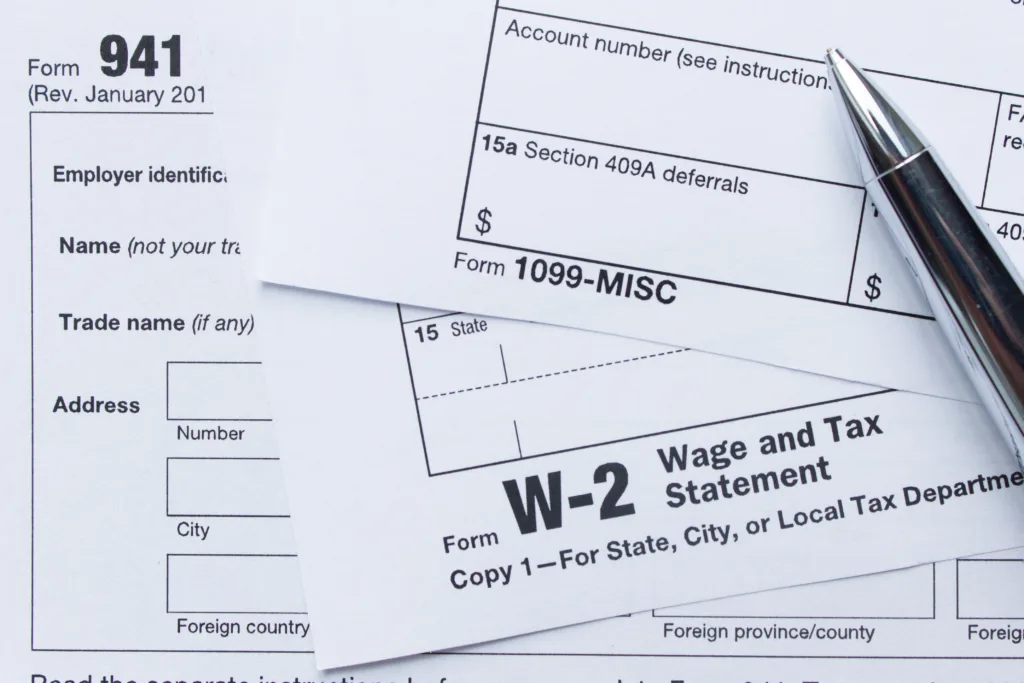
It’s the time of the year when, whether we like it or not, our thoughts turn to taxes—and those copywriters who have been doing freelance work may start to panic at the thought of their tax bill. Today’s post is about how to ensure your freelance copywriting doesn’t turn into a major tax nightmare.
Now, first, let me preface this by saying that I am not a tax professional and my suggestions are not intended to take the place of professional advice from an accountant. If you have any questions at all, I strongly recommend that you consult a licensed tax-preparation professional.
Your Freelance Income, Your Taxes, Your Responsibility
So, first of all, why are taxes a concern with freelance work? Well, when you earn a salary from an employer, that employer takes care of taking out any and all applicable state and federal taxes from that salary before issuing you a check.
When you do freelance work, however, your client doesn’t do that—they just cut you a check for the work that you’ve done and it’s up to you to pay those taxes on your own. If you do a lot of freelance work, you may need to pay quarterly taxes (talk to your accountant!) or you may pay them in a lump sum come April 15th. Either way you have to pay them.
And if you don’t save money to cover those taxes, you could be in trouble.
What Happens if You Don’t Save for Taxes: A Cautionary Tale
I used to work with a graphic designer who had a full-time job, but also did a lot of freelance work on the side. A lot. Unfortunately, he happened to also be lousy at running his freelance business and tracking his income. Great designer, but lousy businessperson. Well, this wasn’t really a problem…until tax time rolled around.
See, he’d done a lot of freelance work, but all of that freelance income had been spent. Sure, it went to important things like rent and transportation and food and even some important fun stuff like travel and professional development, but the point is: it was all gone. So, when his accountant tallied what he owed the government that year, he was floored: He was due to send them a check for $22,000. And, of course, that was $22,000 he didn’t have. Wah waaaaaah.

Save a Percentage Now, Save Yourself a Headache Later
So how to prevent the panic of facing down a $22,000 tax bill? Start off by knowing that it’s coming. You will have to pay taxes on every single freelance copywriting check you earn. It’s a reality, so you might as well accept it.
And once you accept it, prepare for it. Open a no-fee account (separate from your regular checking or savings account) just for your freelance copywriting taxes. I like money market accounts that are easy to access and pay you a bit of interest; I use the CapitalOne 360, but it’s totally up to you. Just make sure it’s easy to transfer money into.
Then, transfer at least 25% of every freelance check you get into that account as soon as the check clears. (Believe me, if you let it sit in your regular checking account, you will spend it.) Twenty five percent will probably be enough to cover your taxes, but I actually like to transfer in 40%—that covers my taxes and usually leaves a bit left over, which I’ve essentially forced myself to save automatically. Win-win!
Be sure, too, that you record all of your freelance income—the last thing you want is to get a bill from the IRS a few years later because they’ve found the money you forgot to report!
Read More: Should Copywriters Collect Sales Tax?
Many states in the U.S. collect sales tax. Generally, laws allow businesses to add this tax on to whatever good or service they are selling. But, as a copywriter, do you need to collect sales tax? We answer that question here >>
Your Turn
How do you (legally) keep from getting stuck with a tax bill that’s more than you can afford? What are your saving secrets? Let us know in the comments below!
Last Updated on March 16, 2025
Not sure how it works in the US but here in New Zealand if you operate as a freelancer under a limited liability structure you can become an employee of your own company. That way, you pay yourself a salary and file monthly with the IRS. You then pay your taxes monthly instead of leaving it until the end of the year with a huge lump sum to pay. I also use accounting software which is linked to the company bank account and will keep track of my salary payments and how much monthly tax I have paid. It’s worked out to be great system for me (being a person who has been in tax trouble in the past).
Hi Mike,
Yep, there’s something similar in the States. *For anyone reading, I am NOT a tax preparation professional; please consult an accountant or licensed tax prep pro.* You’re required to legally form a corporation and then you can pay yourself a percentage of the income as a salary and avoid paying self-employment tax on anything above that salary, but for most freelancers, it’s not going to be worth the hassle and it make more sense for them to keep filing as sole proprietors. Thanks for pointing that out, though!
Nicki